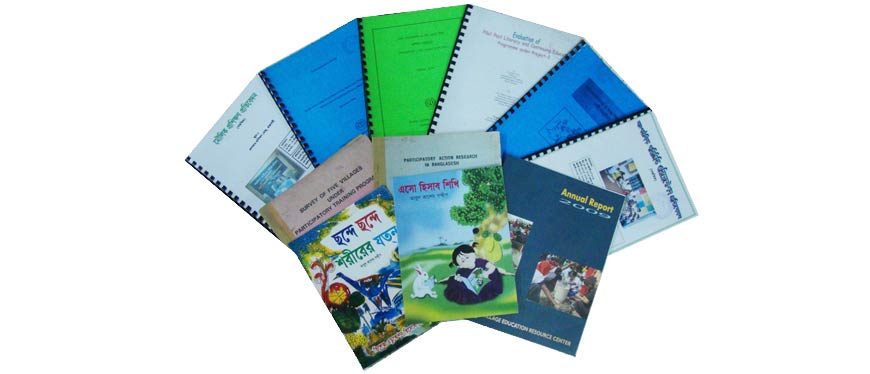Research, Evaluation and Documentation (RED) Section

The Research, Evaluation and Documentation (RED) section was created in 1978 to provide research support to VERC programs. VERC recognizes that it is important to get continuous feedback of research findings to improve the quality of its’ programs performance. The RED section provides support in various ways such as Programmatic Research, Case Studies, Exposure visit, Documentation and support to college and university students by providing information regarding VERC program in performing practical research. The RED staff conducts programmatic Research and sometimes they provide research support to the donor organizations of VERC. Programmatic Research is important to find out the weaknesses of the programs, which are unknown to the program people and suggest them to take corrective action against those weaknesses. In this way it ensures and improves the quality of the program performance. RED section conducts short–term evaluation studies, project review and impact studies for all areas of VERC’s programs.
Studies carried out during July-2009 to June- 2010
i) Interim evaluation of Community Initiated Sustainable 100% WatSan and Hygiene Behaviour Change Project, Kaliakoir – as per the ToR with the donor agency water.org USA, the interim evaluation of project activities implemented in Kaliakoir Upazila in Gazipur district was undertaken in November 2009. An external consultant of donor choice was engaged to conduct the study as per project strategy.
The draft report was available for VERC and donor comments in January 2010. The report was finalized in March 2010. Both qualitative and quantitative methods were applied to carry out the study on impact assessment of the project interventions on people in three intervention area unions of Kaliakoir.
Key findings
It is clear from the information that the project activities are in the right track except in some cases where the project activities are little bit behind the schedule. The sanitation system of the project areas has dramatically improved. Almost all the families have started using hygienic latrine. Water system has also been improved. Now most of the families use deep set hand pump installed by the project by taking only 10 percent installation cost from the beneficiaries. Most of the water points in the project areas have been tested for possible arsenic contamination by the project. In the arsenic contaminated areas, community people received water filtration device (Sono-filter) from the project by paying 10 percent of the price. The hygiene behavior of the people in project areas has changed. Now, people wash their hands before taking food and after defecation. The people are well motivated towards hygiene behavior. They will not give up the practice in future even there is no VERC worker support as the program process has integrated well the local government bodies of the area. Local government bodies are active in the project process taking it as a mandatory task of its own.
ii) Baseline Survey of CLSHP Phase II, in Lalmohan area: The study was carried out in the area to explore the present status of health and MCH service delivery in the area. A competent consultant was engaged for the purpose. The study had been useful to prepare plan of action and reviewing the project strategy and objectives of the project for Phase-II.
iii) Piloting on Human Excreta management: This is an ongoing study of the project has an action research dimension – the key lessons drawn from the project would help disseminate ideas to address the issue of hygienic maintenance of latrines in rural and peri-urban contexts of the country. It would supplement the employment generation needs in a very constructive manner. Environment friendly organic cultivation may find a meaningful direction for popularizing the practice.
iv) Claiming Rights of Children to WASH Project: To make an assessment of the base status of Child Rights in the project area; a baseline study has been carried out in the project area unions in Bagmara, Rajshahi. The study has been conducted by external consultant during the reporting period. The study has explored the child rights situation prevalent in the area which in turn has enabled the project to streamline the plan of action.

